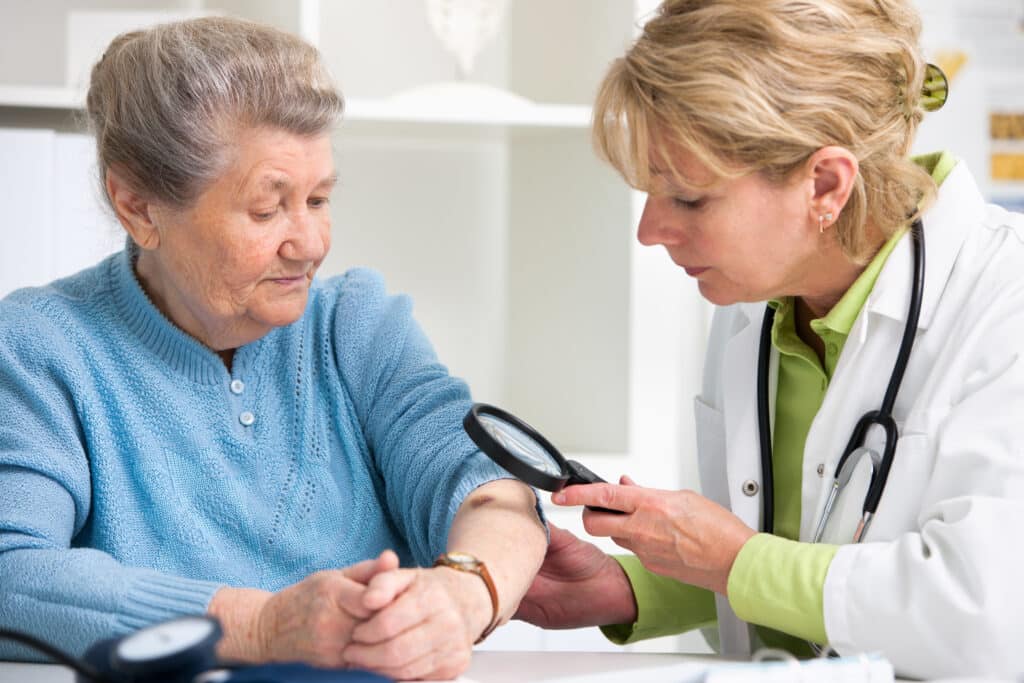As we get older, there is a higher chance of developing skin cancer.
Regular screenings and self-exams can identify skin cancer in the earliest stages, which gives you the broadest options for treatment and the highest chance of recovery. Take the right steps during melanoma awareness month to understand the risk factors, symptoms, and solutions for early detection. Learn the essentials below.
Trigger Factors for Skin Cancer Risks After 65
Several factors contribute to the high risk of skin cancer after the age of 65. Prolonged sun exposure over a lifetime, poor immune systems, decreased skin elasticity, and reduced melanin production are some of the common causes.
Additionally, previous instances of sunburns, radiation therapy, intense laser treatment, radioactive exposure, or a family history of skin cancer can further enhance the risk.
Symptoms of Skin Cancer Risk After 60s
Detecting skin cancer in its early stages is critical for successful treatment. Symptoms of skin cancer risk after age 60 include:
- New or Changing Moles: Keep an eye on any new or changing moles. Most of them increase in size, change color, or develop irregular borders.
- Persistent Sores: Watch for sores that do not heal within a few weeks or recurrent sores in the same area.
- Unusual Skin Growths: Be aware of any unusual growths, bumps, or lumps that appear on the skin. Note if the area around the growth is red, pink, pearly, or translucent.
- Skin Discoloration: Pay attention to the skin areas that appear darker or lighter than the surrounding skin, as this could indicate skin cancer.
- Itching or Pain: Skin cancer may cause itching, tenderness, or pain in the affected area. Observe the area for a few days and go for immediate screening.
Book Your Regular Screening for Skin Cancer in Florida
Understanding the symptoms and risk factors associated with skin cancer can help you with early detection and treatment.
If you notice any concerning changes or symptoms on your skin, don’t hesitate to call us at (954) 577-5161 and schedule an appointment with Plantation Dermatology today. Steven Barilla, MD, and his team are here to give you the best guidance and treatment.


